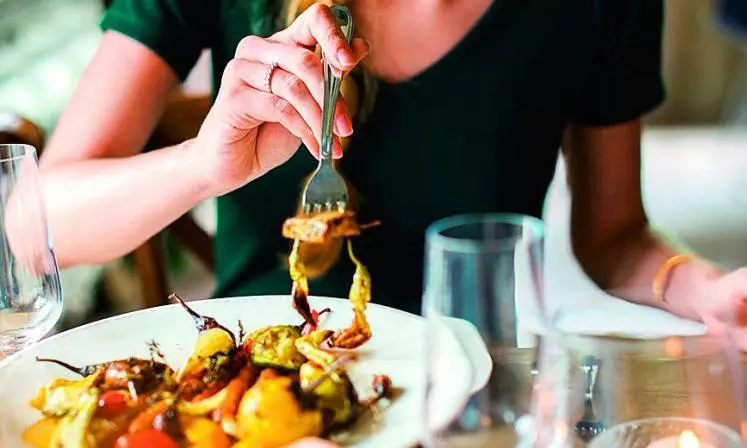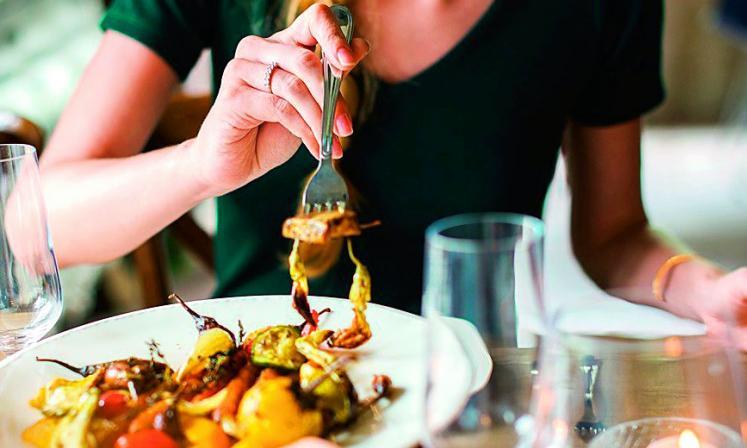
Hyderabad: “I feel a compulsive need to eat late at night, to binge-eat. It’s not something I am proud of, but it happens,” says Sayantan Roy (name changed), a 28-year-old fit-looking software engineer living in Hyderabad. Roy’s struggle with disordered eating is something he keeps hidden.
“I usually do this at night when no one will notice. I even stand by the door so the bell doesn’t alert my flatmates,” he explains quietly.
Roy’s eating habits first started when he moved to Hyderabad for work, after the pandemic. “It was mainly due to my stress about my dog, he wasn’t doing too well,” he shares. Although he managed to control it temporarily, his habits resurfaced as work pressures increased.
“I’d barely sleep because work kept running through my mind. Food became an escape, a kind of relief but also a self-inflicted punishment. I would order late at night, sometimes even at 4 am and binge eat. The guilt was overwhelming, but I couldn’t stop,” he admits.
Though Roy seems fit and active to those around him, his battle with food is less visible, as it is for many people struggling with eating disorders.
Mira Patel (name changed), a 29-year-old banker on the opposite side of Hyderabad, faces a similar struggle as Roy. “I order food late at night because I don’t want anyone to see me eating. It’s shameful somehow, and when you’re living alone, it’s easier to hide,” she admits.
Mira’s issues go beyond binge eating; she often skips meals and weighs herself multiple times a day. “I know it’s not healthy to check my weight so often. But the numbers get in my head and they start to take over,” she explains.
What Roy and Patel have in common apart from their urban isolation, are food delivery apps. A study from Melbourne University titled “Tonight, I’m Disordered Eating: The effects of food delivery app use, loneliness, and mood on daily body dissatisfaction and disordered eating urges” explains these experiences further. The research suggests that food delivery app (FDA) use can worsen urges to overeat, especially in those already feeling isolated or struggling with low moods.
Using a daily tracking method, researchers found that people who used these apps more frequently reported a stronger desire to overeat and greater dissatisfaction with their bodies. Loneliness and negative moods were significant triggers, especially among people living alone in cities.
The proliferation of these apps has made accessing meals convenient and immediate which in turn has surged maladaptive eating disorders.
According to the study, loneliness can deepen these habits. The researchers noted that being alone might prompt people to turn to food for comfort, creating a “dysfunctional self-evaluation system,” where food becomes both friend and foe. The convenience of food delivery apps, allowing people to order at any hour, often feeds this cycle further.
“Hyderabad is a place where people come to make a mark and prove themselves, and that pressure can lead people to use food as both a comfort and a punishment,” says Ashwini Sagar, a nutritionist.
Dr Akula, a city-based psychiatrist, points out that young professionals living alone in big cities are more vulnerable to disordered eating than those in social or rural environments. “Urban isolation often pushes people toward disordered eating. They turn to food as a coping tool when dealing with the loneliness that comes with living alone. Studies show that those who live alone are more likely to face mental health issues, including anxiety, depression, and eating disorders.”
For Sayantan, eating with family or friends doesn’t carry the same heavy feeling as eating alone. “When I’m with others, eating is a social act. It doesn’t feel wrong or excessive. But eating alone is different. It’s emotional and somehow tied to my mental health,” he explains.
This difference between eating with others and eating alone as a form of comfort or escape shows the complex role food now plays in the lives of Hyderabad’s young professionals. Facing demanding work hours, high expectations and often having limited support systems, many turn to food to cope with isolation and stress.
“When someone feels low or stressed, their brain’s “reward” system kicks in. Foods high in sugar, fat or salt can temporarily make them feel better by releasing dopamine, a feel-good chemical. This quick boost creates a habit, where food becomes a go-to for comfort during hard times,” says Dr Akula.
The easy access to meals through food delivery apps further turns eating into a habit hard to control. These people spend thousands of rupees on these apps. “I spent Rs.40,000,” admits Roy.
Ashwini concludes, “A more structured life and a better understanding of one’s eating pattern can be a respite for these.” And for people like Sayantan and Mira, this understanding might be the first step toward building healthier ways to cope in this fast-paced world.
